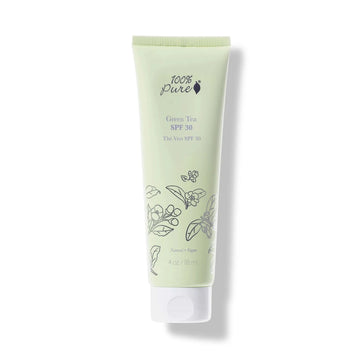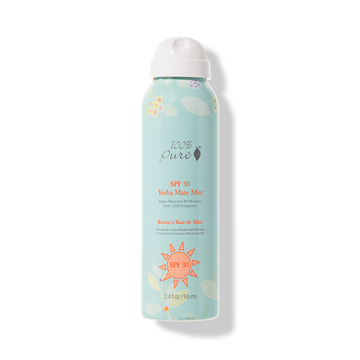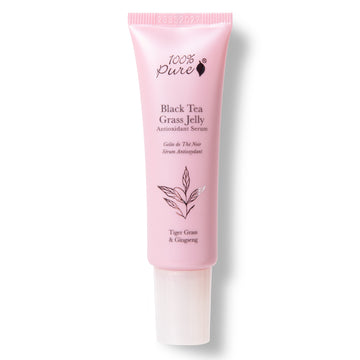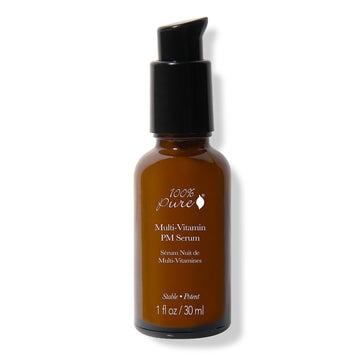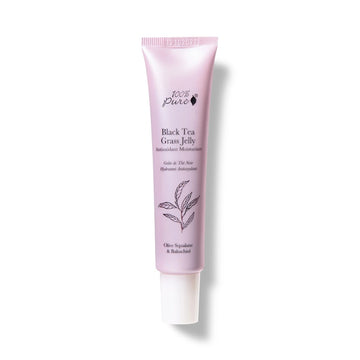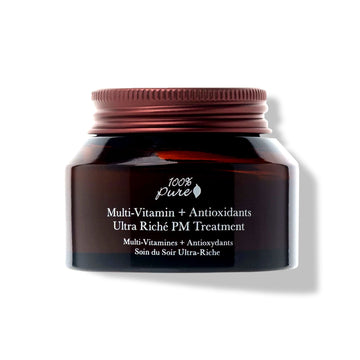Embrace the Sun Safely with Nature's Best UV Shields
Written by: 100% PURE®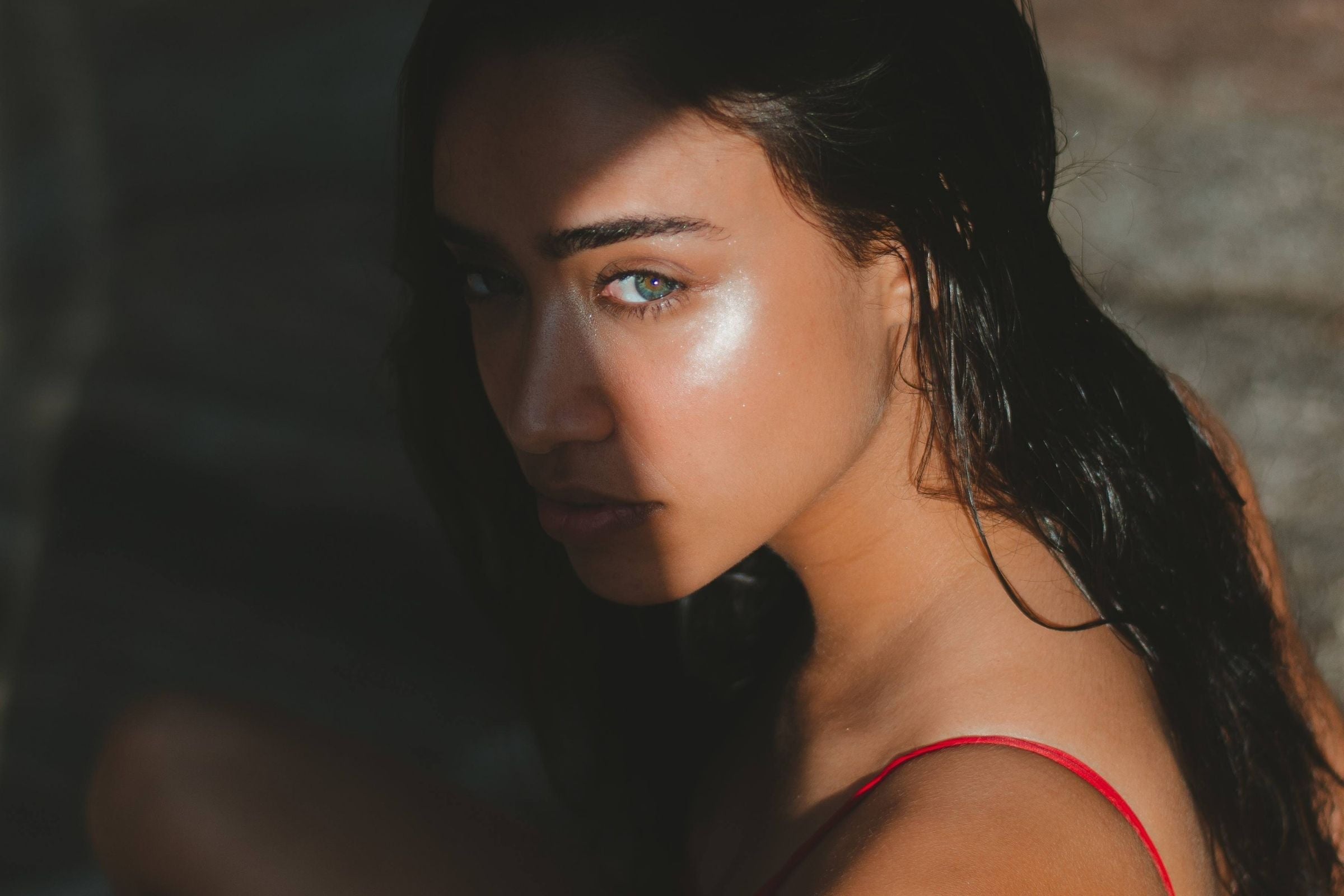
The sun, a celestial body that bestows life-sustaining light and warmth, has a dual nature. While its rays offer numerous health benefits, they also harbor the potential for harm, particularly in the form of damaging ultraviolet radiation. Sunscreens have emerged as our shield against the sun's harmful effects, traditionally relying on chemical ingredients.
However, there's been a notable shift towards natural alternatives, driven by concerns about the environmental impact and potential health risks associated with synthetic sunscreens. This shift signifies a growing awareness of the need to protect our skin and the planet simultaneously.
UVA, UVB, and UVC rays, emitted by the sun, each have distinct effects on our skin. UVA rays penetrate deeply, contributing to premature aging and causing DNA damage. UVB rays primarily affect the skin's upper layers, leading to sunburn and increasing the risk of skin cancer. While the Earth's atmosphere absorbs UVC rays, UVA and UVB are responsible for most sun-related skin issues.
Prolonged sun exposure can result in sunburn, premature aging, and heightened risks to skin health. The good thing is that all of these problems can easily be solved only if you use a good sunblock daily!
Natural sunblocks have garnered attention for several compelling reasons. Traditional sunblocks use chemical filters that, while effective against UV rays, can irritate sensitive skin. In contrast, natural sunblocks, with minerals like zinc oxide and titanium dioxide, provide a gentler and safer option for sun protection.
Furthermore, the environmental impact of synthetic sunscreens, with their potential to harm coral reefs and marine ecosystems, has raised concerns. Natural sunblocks, composed of eco-friendly ingredients, promise effective sun protection without compromising the environment. This dual emphasis on skin and environmental well-being sets them apart as an appealing choice for conscious consumers.
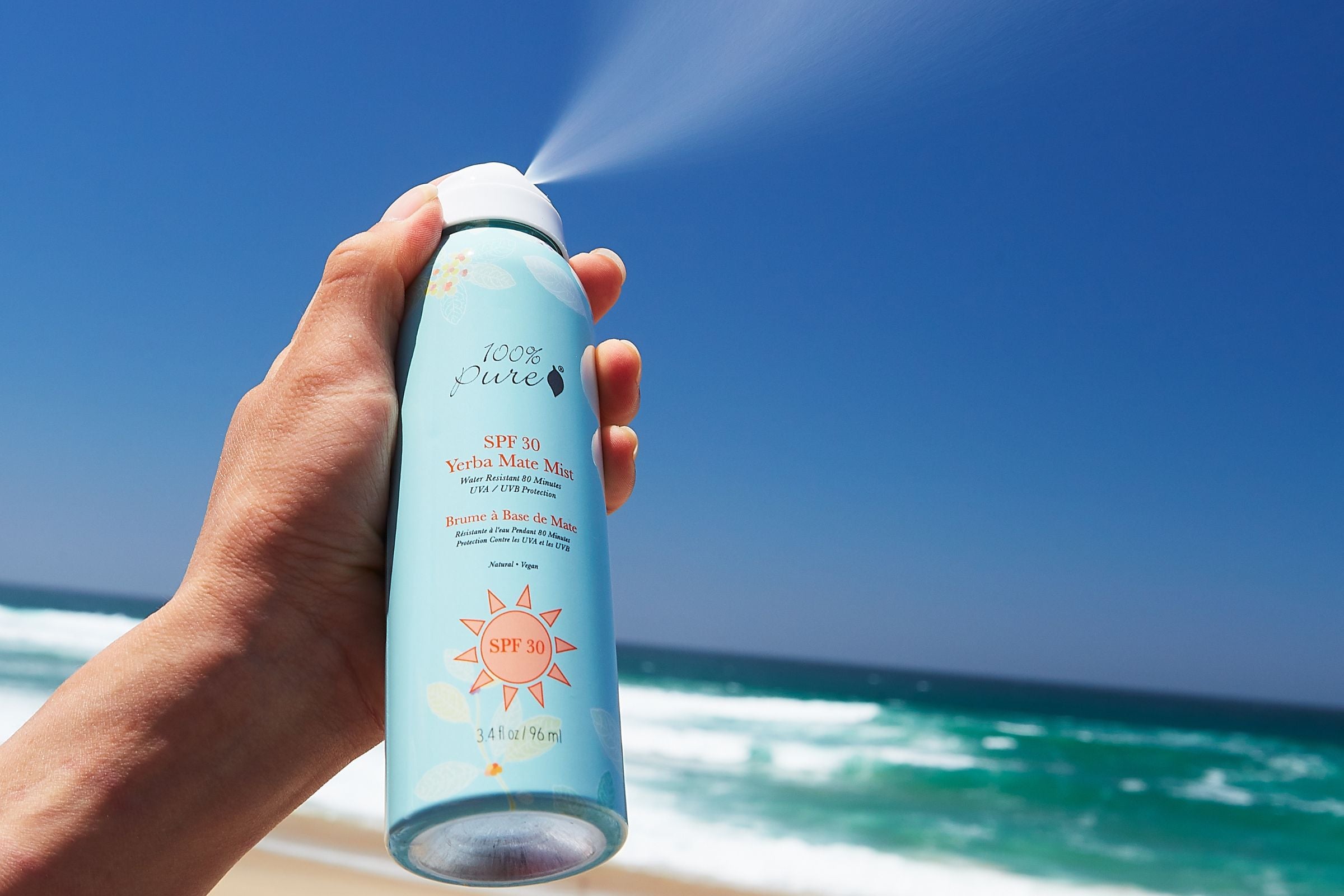
Natural sunblocks are formulated with key ingredients that not only protect the skin from harmful UV rays but also offer nourishing and skin-friendly benefits:
Zinc Oxide: This mineral is a cornerstone of natural sunblocks. It provides broad-spectrum protection by forming a physical barrier on the skin's surface that reflects and scatters UVA and UVB rays. Non-nano zinc oxide is preferred, as it doesn't penetrate the skin, ensuring safety and effectiveness while reducing the risk of skin irritation.
Titanium Dioxide: Like zinc oxide, titanium dioxide is a mineral that acts as a physical barrier. It shields the skin by reflecting and scattering UV rays, offering an additional layer of protection against the sun's harmful effects.
Botanicals and Oils: Many natural sunblocks include botanical extracts like aloe and green tea, along with nourishing oils like jojoba oil. Aloe provides soothing and hydrating properties, making it ideal for calming sun-exposed skin. Green tea is rich in antioxidants, which can help combat the damaging effects of UV radiation. Jojoba oil not only offers hydration but also acts as a natural emollient, leaving the skin soft and supple.
100% PURE is a beauty brand dedicated to providing pure, natural, and environmentally responsible products. Our philosophy centers on clean beauty, cruelty-free practices, and the use of only the highest quality, plant-based ingredients. We understand the crucial role sunblock plays in safeguarding our skin from harmful UV radiation. To that end, we have created sunblocks that not only provide effective sun protection but also prioritize the well-being of both the skin and the environment.
Our sunblocks, such as the Green Tea SPF 30 and Yerba Mate Mist SPF 30, are formulated with clean, mineral-based ingredients like zinc oxide, which offers broad-spectrum protection. Let’s take a closer look at both of the sunblocks:
1. Green Tea SPF 30
100% PURE's Green Tea SPF 30 is a mineral-based sunblock that blends zinc oxide with antioxidant-rich green tea. It offers broad-spectrum protection against UVA and UVB rays while nourishing the skin.
Benefits
Provides SPF 30 protection.
Green tea extract offers antioxidant benefits.
Mineral formula is gentle on sensitive skin.
What do our customers like about this?
- "Great sunscreen. Creamy, moisturizing formula." PY from the USA
- “This is the only sunscreen I use and have not had any sun pigment or sunburn at all.” - Deborah from the USA
- “Green tea goodness. Love the scent and blend-ability of this product” - Aly from USA
2. Yerba Mate Mist SPF 30
The Yerba Mate Mist SPF 30 is a convenient and eco-friendly sunblock in spray form. It incorporates zinc oxide for UV protection and yerba mate tea for added antioxidant benefits.
Benefits
Easy-to-apply mist for on-the-go use.
Contains yerba mate tea, which offers additional antioxidant protection.
Suitable for all skin types.
What do our customers like about this?
- "Loved this sun protection. Superfine mist and easy to apply.” - Deena from USA
- “I have super acne-prone skin and it does not break me out. I apply it once on my face at about 10 a.m. most mornings and the application definitely keeps me protected all day.”- Katie from USA
- “Oh my goodness this is one of the best natural spray sunscreens. Goes on real easy and doesn't cake or burn.” - Sophie from USA
Quantity Matters: To ensure full coverage, apply a sufficient amount. A general rule is to use about one ounce (a shot glass full) for your entire body. For the face, use about a nickel-sized amount.
Timing It Perfectly: Apply sunblock 15-30 minutes before sun exposure. This allows the product to properly adhere to the skin.
The Reapplication Rule: Reapply every two hours, or more frequently if swimming or sweating. Reapplication is crucial to maintain continuous protection and should not be overlooked for all-day sun exposure.
Newsletter Subscribe
for more blog updates and exclusive discounts
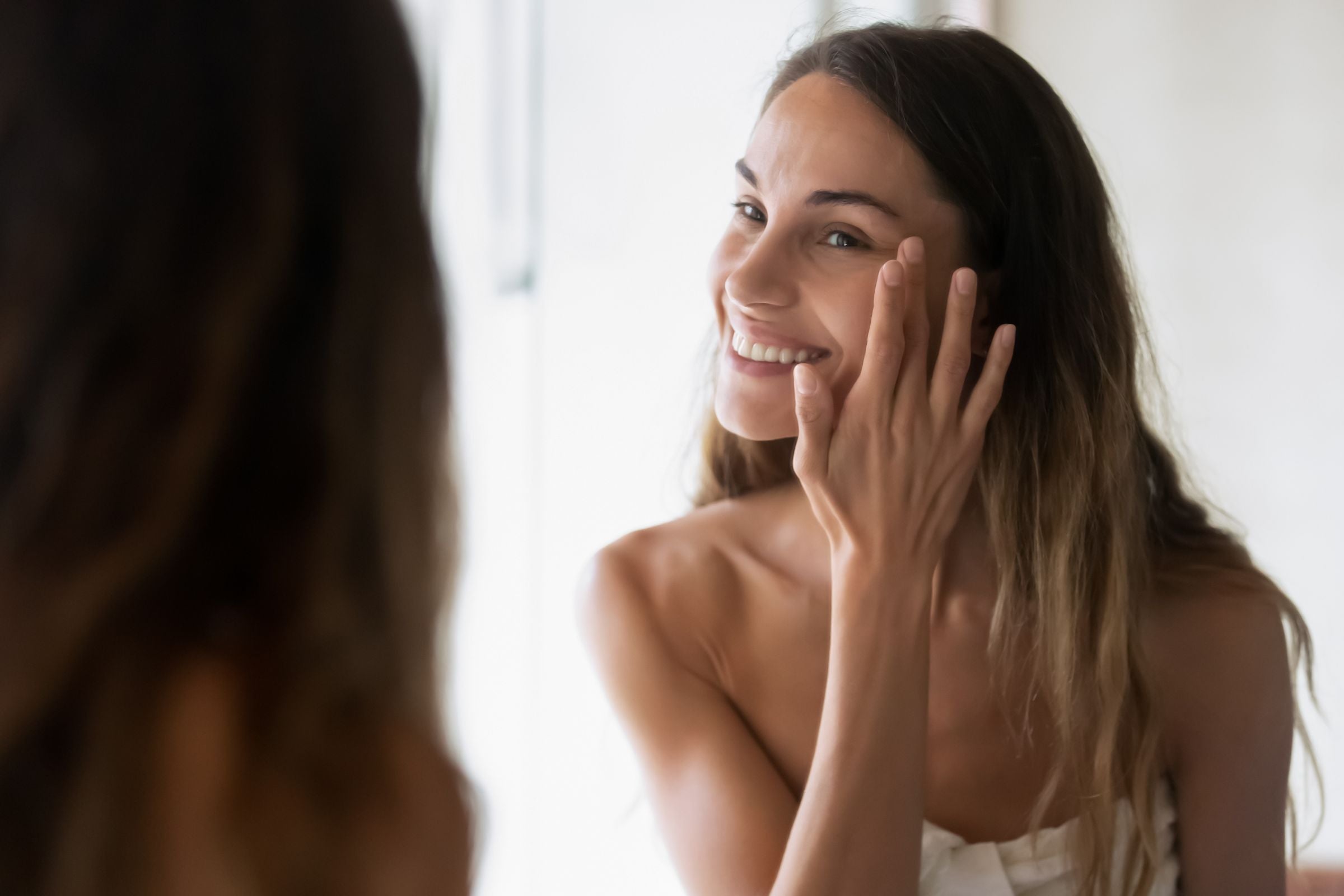
For an effective skincare routine, consider layering sunblock with other products like serums and moisturizers. Start with your serum, which can provide additional benefits such as antioxidants to combat free radicals. Follow with sunblock to ensure UV protection. Finish with moisturizer to lock in hydration.
Antioxidant serums, in particular, can enhance the efficacy of sunblocks. They help protect the skin from oxidative stress caused by UV radiation, reducing the risk of premature aging. This is vital for maintaining healthy skin, and it complements the protective role of your sunblock.
|
AM Routine |
PM Routine |
|
Black Tea Grass Jelly Anti-oxidant Serum This serum is designed to protect the skin from damage caused by free radicals. It contains black tea, a powerful antioxidant that shields against free radicals. By neutralizing these harmful molecules, it helps to maintain youthful and radiant skin. |
Multi-Vitamin + Antioxidants Potent PM Serum In your evening routine, this serum combats daily damage to the skin, including the effects of pollution and UV exposure. Note that it contains Vitamin A, so wearing sunblock the next day is imperative to prevent photosensitivity. |
|
Black Tea Grass Jelly Anti-oxidant Moisturizer This moisturizer, also enriched with black tea, reinforces the protective benefits of your sunblock. Black tea's antioxidant properties support the reversal of free radical damage, ensuring your skin remains resilient and rejuvenated in the face of UV exposure. |
Multi-Vitamin + Antioxidants Ultra Riché PM Treatment This treatment product works to repair and rejuvenate your skin overnight. With a combination of vitamins and antioxidants, it combats the daily damage your skin faces. As it contains Vitamin A, it's essential to protect your skin with sunblock the following day to prevent UV-induced damage. |
What does SPF actually signify, and how high should I go?
SPF, or Sun Protection Factor, measures a sunscreen's ability to block UVB rays. The choice of SPF depends on your skin type and sun exposure. For everyday use, SPF 15-30 is usually sufficient, while extended outdoor activities require SPF 30 or higher.
How do natural sunblocks fare in water/sweat situations?
Natural sunblocks can vary, but many are water-resistant. Look for water-resistant labels, but reapply after swimming or sweating for the best protection.
Can I use body sunblock on my face?
It's generally safe to use body sunblock on your face, but facial sunscreens are formulated for the face's delicate skin and offer better compatibility under makeup.
How often should I update my sunblock stash?
Sunblocks have expiration dates, so check annually and replace them if expired. Also, consider a replacement if the product changes in color or consistency.
Are natural sunblocks kid-friendly?
Natural sunblocks are more kid-friendly than other standard sunblocks. Still, it is advisable to always check labels for child-specific products. See if it has gentle, hypoallergenic formulations and higher SPF levels for young skin.
In addition to adopting a holistic approach to sun protection, it is also effective to combine natural sunblocks with physical barriers like hats and shade. It provides a comprehensive defense against UV radiation. Remember, using natural sunblock not only cares for your skin but also contributes to environmental preservation.
- Tags: October-2023, Skin Care, skincare
We carefully hand-select products based on strict purity standards, and only recommend products we feel meet this criteria. 100% PURE™ may earn a small commission for products purchased through affiliate links.
The information in this article is for educational use, and not intended to substitute professional medical advice, diagnosis, or treatment and should not be used as such.


